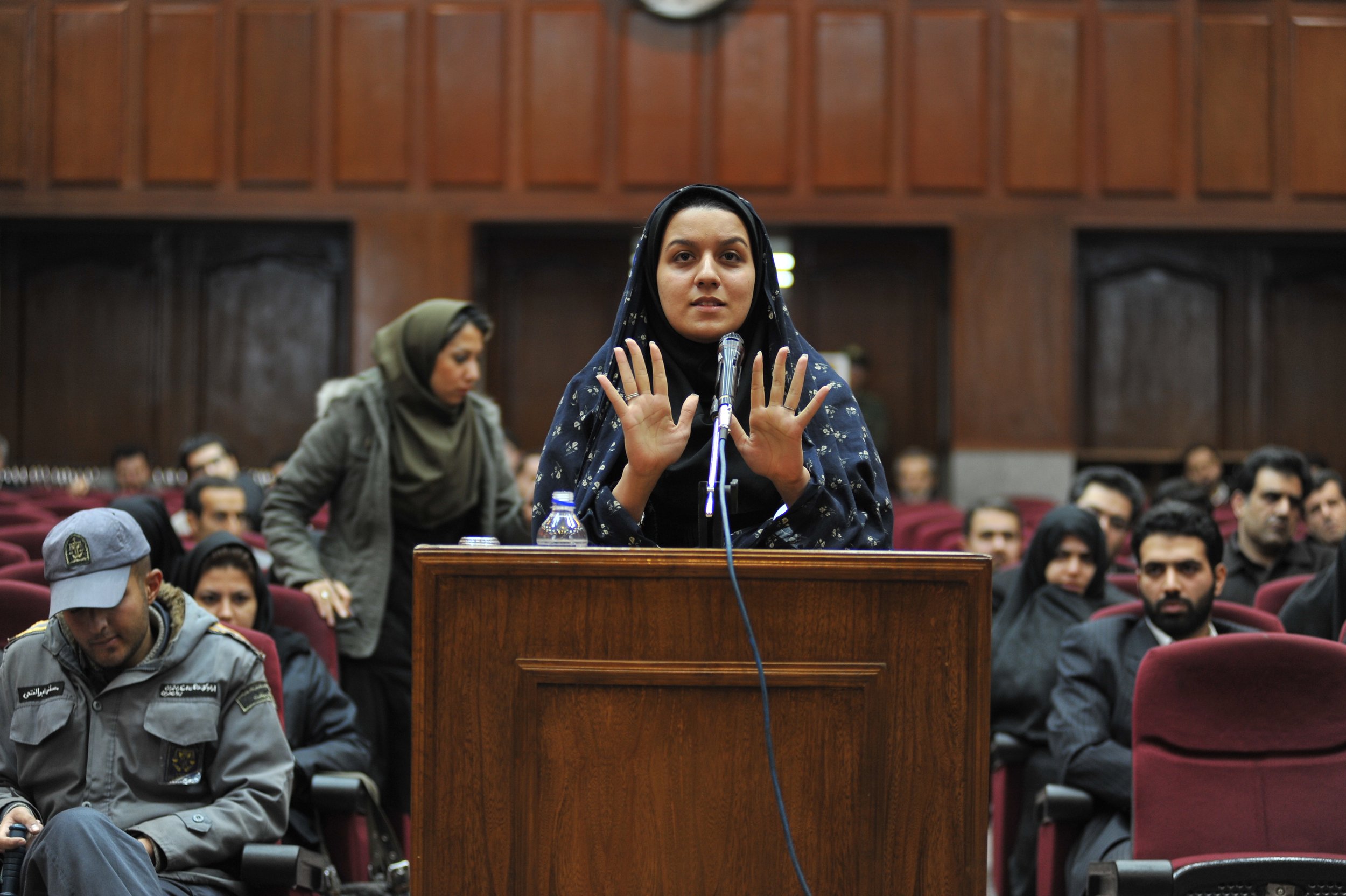Seven Winters in Tehran: Chilling Doc Exposes Horrors of Life for Women in Iran
By Liam Lacey
Rating: B+
The news is filled with images of suffering and accounts of atrocities about which we can do almost nothing except feel badly.
As Susan Sontag wrote in her 2003 essay, Regarding the Pain of Others: “Compassion is an unstable emotion. It needs to be translated into action, or it withers. The question of what to do with the feelings that have been aroused, the knowledge that has been communicated. If one feels that there is nothing 'we' can do — but who is that 'we?’ — and nothing 'they' can do either — and who are 'they' — then one starts to get bored, cynical, apathetic.”
That sense of thwarted compassion is an unintended effect of Seven Winters in Tehran, an otherwise well-crafted first documentary by German filmmaker Steffi Niederzoll, which consists largely of video and audio interviews smuggled out of Iran.
Her film follows the chronology of the arrest and trial of a young woman, Reyhaneh Jabbari, whose trial made international headlines a decade ago. Her story can be seen as a forerunner of the protests for women’s rights that caused the Iranian regime to tremble in the fall of 2022, following the death in custody of 22-year-old Mahsa Amini, who was arrested by country’s morality police for wearing her hijab improperly.
In 2007, Jabbari was a 19-year-old Iranian interior designer, convicted of the stabbing homicide of a man who told her he was a doctor, and former agent of the Iranian ministry of intelligence. She testified that he attempted to rape her after luring her to an apartment with the promise of a job, and she stabbed him with a pocketknife that was lying on the table.
She was arrested that night, and spent from 2007 to 2014 in jail, where she wrote letters, smuggled out to her family. “I want to tell everyone my story,” she told her mother, Shole. Thanks to her writings and phone calls from jail (read in voiceover by actress Zar Amir Ebrahimi), her mother’s lobbying on social media, and her lawyer publishing his account of the trial on a blog, Jabbari’s ordeal gained international attention.
The United Nations, Amnesty International, and the European Union all lobbied for a new trial in a case that was rife with human rights abuses. Jabbari was subjected to extended solitary confinement, beatings, and coerced confessions under the threat to also jail Jabbari’s then-14-year-old sister.
Mid-trial, the judge was replaced by an Islamic scholar and former revolutionary guard. He told her she should have acquiesced to the rape and reported it later.
A key element in the case was an Iranian law that says a member of the victim’s family can provide a reprieve from a death sentence. Jabbari’s mother recounts how she reached out to the victim’s family but the would-be rapist’s/doctor’s son, Jamal, was adamant that unless Jabbari retracted her testimony that tarnished his father’s reputation, she must be hanged.
Her own sense of honour precluded that possibility. Jabbari’s refusal to lie to save her life made her a martyr for the abuse of women in Iran. Filmmaker Neiderzoll augments this idea by including interviews with other women inmates, including one who describes how, in a painful account, she was sold as a child into prostitution by her father.
You can’t help but feel the anguish of Jabbari’s loving, dignified parents, and marvel at her stoicism. But in the end, all their efforts and moral principles were futile.
The result is a tragedy without catharsis. That makes it difficult to know, as Sontag said, “what to do with the feelings that have been aroused.”
Seven Winters in Tehran. Directed by Steffi Niederzoll. Written by Steffi Niederzoll and Sina Ataeian Dena. With Reyhaneh Jabbari, Shole Pakravan and Feyredoon Jabbari. Now available on video on demand across Canada.



